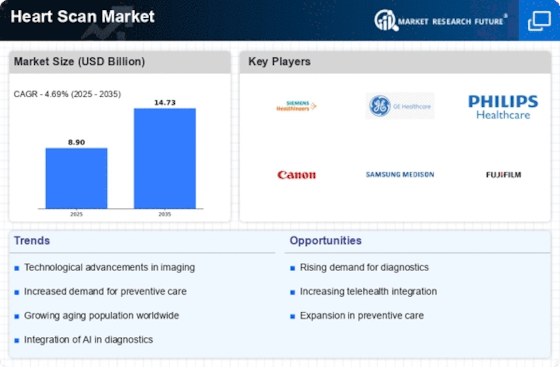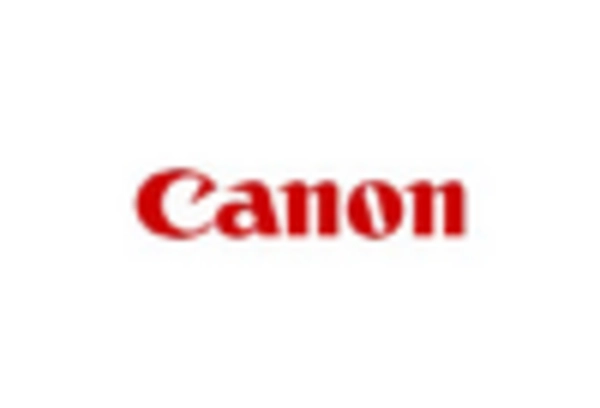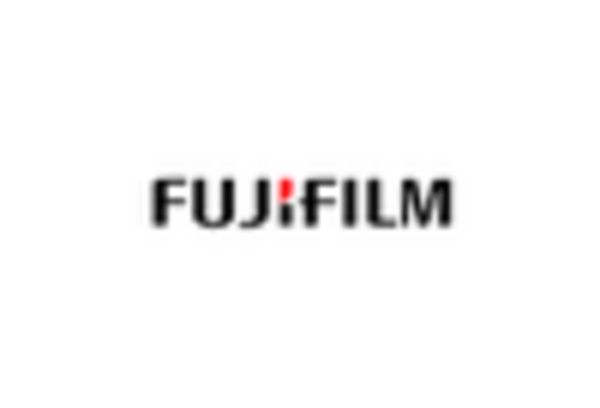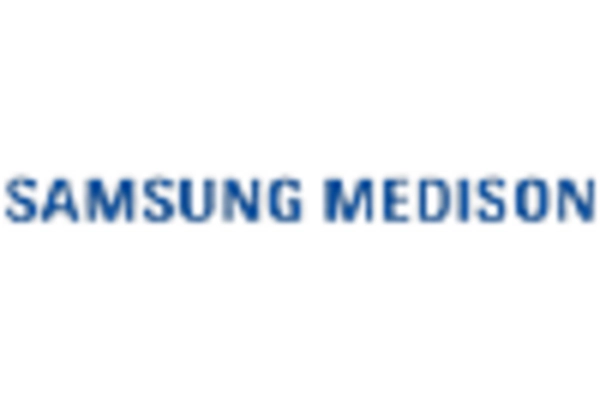According to the Centers for Disease Control and Prevention (2015), over 630,000 Americans die each year from heart disease, accounting for one out of every four deaths. In addition, the growing senior population and rising healthcare costs have fueled the market's expansion. On the other side, throughout the projection period, rigorous regulatory requirements and the high cost of diagnostic tests may hinder the expansion of the heart scan market.
GE Healthcare (April 2024): GE Healthcare announces a collaboration with leading AI firm XYZ to develop next-generation AI-powered algorithms for improved image analysis and disease detection in their Vivid series of cardiac ultrasound systems.
Koninklijke Philips N.V. (March 2024): Philips introduces EPIQ Elite, its new premium cardiac ultrasound system that features an advanced transducer technology for superior image clarity and faster workflow.
Siemens Healthineers AG (February 2024): Siemens Healthineers secures regulatory approval for Acuson Sequoia, a groundbreaking point-of-care ultrasound system designed to improve the assessment of the heart in patients admitted to intensive care units.
Hitachi Medical Corp. (January 2024): Hitachi Medical launches Noblus ECO, another small and inexpensive echocardiography system aimed at increasing access to high-quality cardiovascular imaging in less developed countries.
In February 2023, Abbott purchased Cardiovascular Systems Inc., thereby gaining a strategic edge over its rivals in terms of sophisticated diagnostic products like CSI’s state-of-the-art atherectomy devices which are well-prepared against vascular diseases.
In June 2022, Idoven raised €18.5 million ($22m) from investors for developing its platform based on artificial intelligence for diagnosing cardiovascular diseases such as atrial fibrillation and myocardial infarction in order to detect them early as possible.
St. Jude Medical LLC (St. Jude Medical), a subsidiary of Abbott Laboratories, is a cardiovascular medical device researcher, manufacturer, and distributor. CRT devices, implantable cardioverter defibrillators (ICDs), remote monitoring systems, cardiac mapping and pacemakers, visualization systems, catheter-based ablation devices, spinal cord stimulation, structural heart products, peripheral nerve stimulation, and deep brain stimulation devices are among the company's products. St. Jude Medical is based in St. Paul, Minnesota, in the United States.
Teleflex Inc (Teleflex) is a company that creates, develops, manufactures, and distributes disposable medical equipment for use in critical care and surgery. Circuits, masks, bags, endotracheal tubes, pain pumps, supraglottic airways, catheters, adaptors, and connections are among the company's main products. The company's products are used in vascular and interventional access, surgery, anesthesia, cardiac care, urology, emergency medicine, and respiratory care, among other sectors. Teleflex is based in Wayne, Pennsylvania, in the United States.
Key players in the heart scan market:
Some of the major players in this market are
- Boston Scientific Corporation (U.S.)
- Coloplast (Denmark)
- Dispocard GmbH (Germany)
- St. Jude Medical (U.S.)
- Abbott Laboratories (U.S.)
- Johnson & Johnson (U.S.)
- Teleflex Incorporated (U.S.).
- Smiths Medical (U.S.)
- Edwards Life Sciences Corporation (U.S.)
- Medtronic Inc (U.S.)
- Rochester Medical Corporation (U.S)
- Maquet Medical India Private Limited (India)
- Terumo Medical Corporation (Japan)
Intended Audience
- Cardiovascular Products Manufacturers
- Cardiovascular Products Providers
- Medical Research Laboratories
- Research and Development (R&D) Companies
- Market Research and Consulting Service Providers
- Potential Investors
















